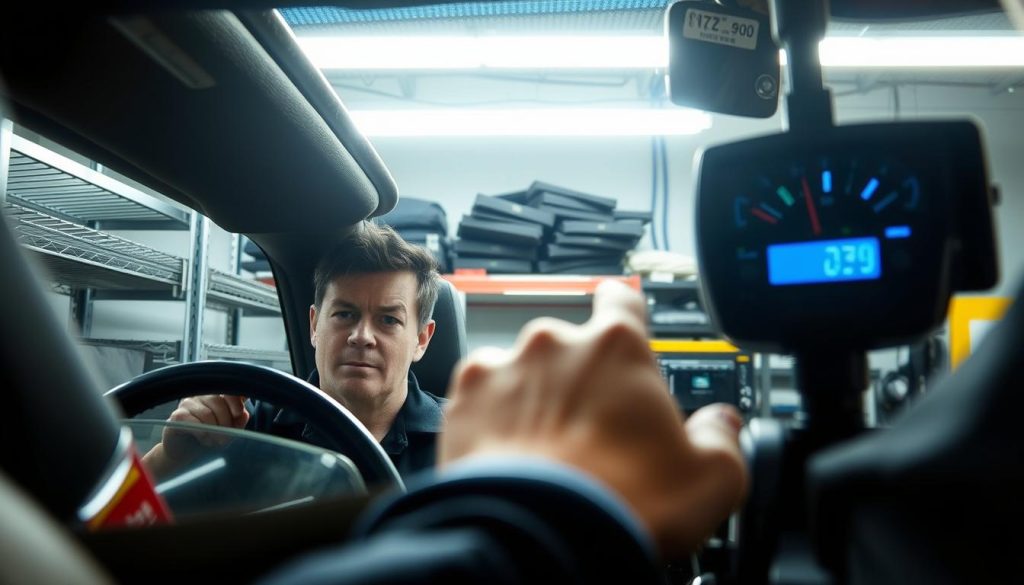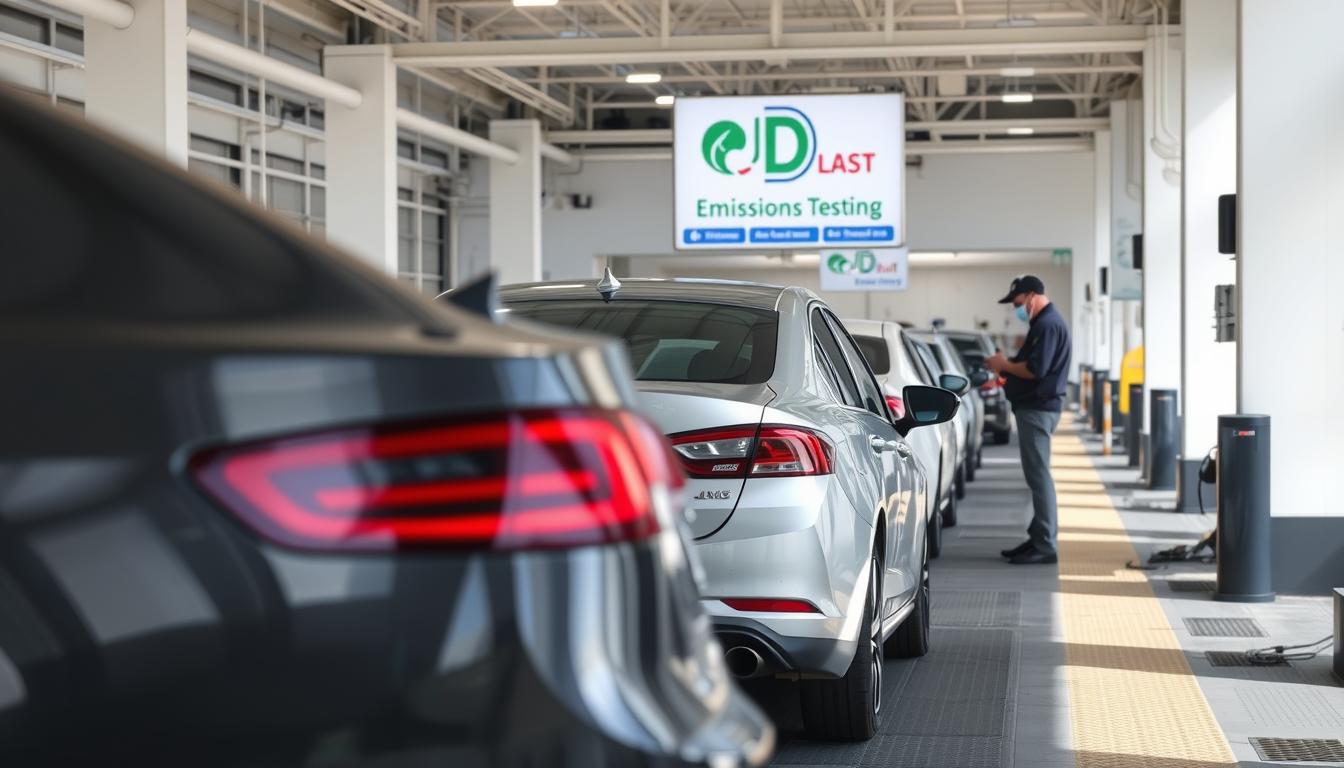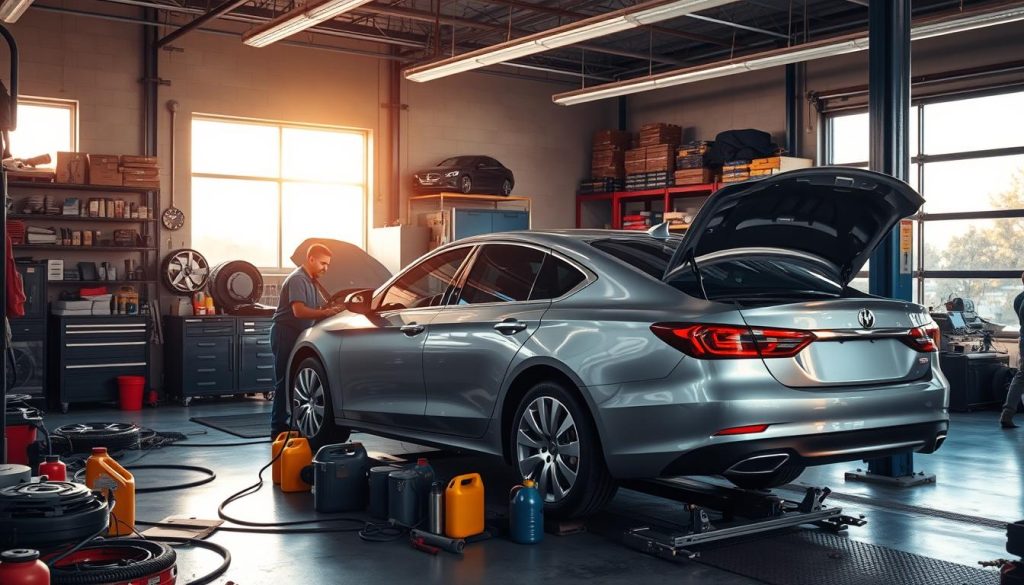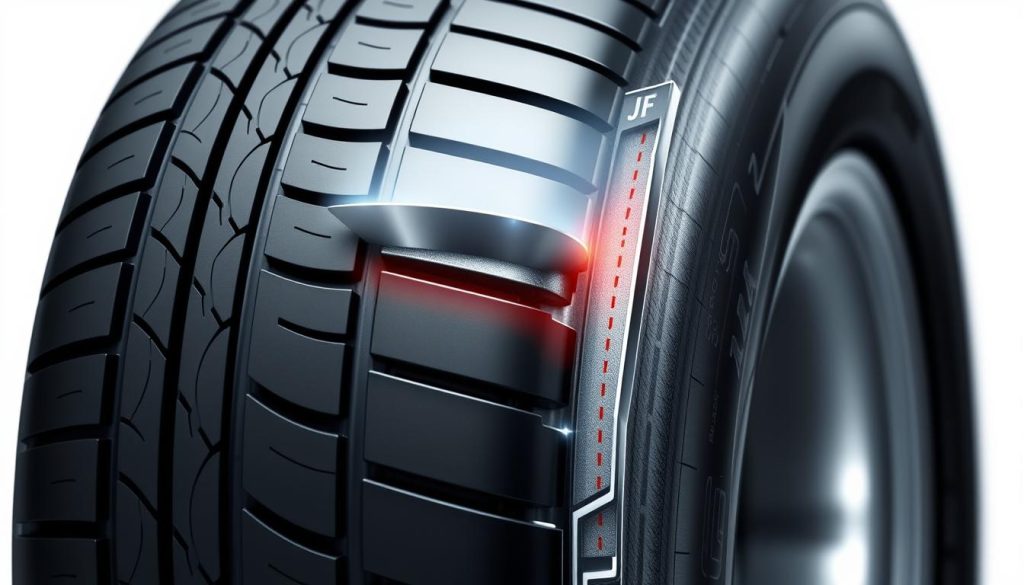Passing emissions tests is key for car owners. In places like San Antonio, knowing the rules helps save time and money. It also helps the environment.
We need to know the rules for emissions tests. This makes sure our cars are legal. Texas started checking cars more closely from 2002 to 2027.
Learning about emissions tests helps us get ready. It keeps us from having trouble with our car’s registration.
Key Takeaways
- Understanding emissions testing helps in maintaining vehicle compliance.
- Annual inspections are needed in some areas, like San Antonio, starting from 2015.
- Knowing local rules can save money and make your car more reliable.
- Regular car care is important for passing emissions tests.
- Knowing when inspections are due, like in Bexar County, is very important.
Understanding the Importance of Emissions Testing
Emissions testing is key to keeping our air clean. It helps us follow rules to protect our environment. This way, we all help keep our air and planet safe.
The Role of Emissions Testing in Environmental Protection
Emissions tests cut down on bad air like carbon monoxide. This makes our air cleaner and our health better. Cities need these tests to fight pollution and climate change.
How Emissions Tests Affect Vehicle Registration
In places like Texas, passing emissions tests is needed for car registration. Not doing this can lead to fines. Even with changes in 2025, emissions tests will stay important for cars in certain areas.
Emissions Testing San Antonio: Requirements and Regulations
In San Antonio, knowing about emissions testing is key for car owners. The city aims to clean the air. So, we need to know when and who must get tested.
Frequency of Testing
In Bexar County, cars must get tested every year after two years of their model. New cars are free for two years. Cars older than 24 years don’t need it. Also, diesel and electric cars are not tested.
Starting November 1, 2026, San Antonio will test cars more. This is to meet the Environmental Protection Agency’s standards.
Who Must Participate in Emissions Testing
Most cars in Bexar County must pass the test. This includes city, county, and business cars. If you move to Texas or change your car’s title, you’ll need to pass a smog check and safety inspection.
Not passing these tests can stop you from registering your car. So, it’s important to stay on top of these rules.
Preparing Your Vehicle for the Emissions Test
Keeping your vehicle in good shape is key for emissions tests. Knowing how to get ready can help you pass. We must focus on regular care, fixing warning lights, and keeping our cars in top shape.
Maintenance Tips to Ensure Compliance
Regular care is important for passing the emissions test. Here are some tips:
- Get regular engine tune-ups to keep it running well.
- Change the oil as suggested to cut down on bad emissions.
- Check tire pressure often to match the maker’s specs.
- Look for leaks or damage in the exhaust system.
Checking Your Check Engine Light
A lit check engine light means there’s a problem. It’s important to fix these issues before the test. If we ignore it, we might fail the test.
Importance of a Well-Tuned Vehicle
A well-tuned car cuts down on emissions and meets rules. Doing things like adjusting fuel mixtures helps. By taking care of our cars, we help the environment and keep our vehicles running well.
Common Issues That Lead to Test Failures
We need to know what can cause emissions test failures. Knowing these common problems helps us fix them early. A big problem is the catalytic converter, as it can fail and cause tests to fail.
Also, an exhaust system that doesn’t work right makes things worse. And, keeping the right fluid levels is key to passing tests.
Faulty Catalytic Converters and Their Impact
A bad catalytic converter is a main reason for test failures. It helps cut down on bad emissions. If it fails, it turns on the check engine light.
Ignoring this light can lead to bigger problems and expensive fixes. Checking it often helps catch issues early and avoid big fines.
Significance of the Exhaust System
The exhaust system must work right to pass tests. Inspectors look for leaks or rust. Any problems can cause more emissions and fail the test.
Fixing small issues in the exhaust can stop big problems later. It keeps our car running well and passing tests.
How Fluid Levels Affect Emissions
Keeping the right fluid levels is key for our car to run well and pass tests. Low oil can wear down the car and pollute more. A bad gas cap lets fuel vapors out, making it harder to pass.
By checking and keeping fluid levels right, we avoid many problems. This helps our car pass emissions tests.

Pre-Test Procedures to Consider
Getting our vehicle ready for an emissions test is important. We need to follow some key steps. This makes sure our car runs well and we pass the test.
Driving Your Car Before the Test
Driving fast a few days before the test is key. It cleans the catalytic converter and warms the engine. A warm engine helps avoid test failures.
Using Fuel System Cleaners
Fueling system cleaners help our engine run better. They remove harmful deposits. This makes our car’s emissions better, which is great for the test.
Mock Inspections for Additional Assurance
A mock inspection helps us check if our car is ready. We can look at the exhaust system and check lights. Finding problems early lets us fix them, making us more confident for the real test.
What to Do if Your Vehicle Fails the Emissions Test
Getting a failing emissions test is really frustrating. Knowing why it happens helps us find ways to fix it. Issues like catalytic converter problems, exhaust leaks, or ignition system malfunctions are common. Finding out what’s wrong is the first step.
Identifying and Addressing Common Failures
Spotting the problem is key when your emissions test fails. Here are some usual problems:
- Catalytic converter: A broken catalytic converter can really mess up emissions.
- Exhaust system: Leaks or damage can cause high emission levels.
- Ignition issues: Problems with the ignition system can make the engine run poorly.
- Check Engine Light: If it’s on or not working right, it might mean bigger issues.
When to Seek Professional Help
After figuring out why your emissions test failed, you might need to fix it. Getting a mechanic’s help is a good idea for tricky problems. Places like Heaven Automotive offer special help to fix your car’s issues. Getting expert help can help you pass the test next time.

Conclusion
Passing emissions testing in San Antonio needs good vehicle care and knowing the rules. Bexar County will start emissions checks by 2026. Keeping our cars in top shape helps us follow the rules and protect the environment.
The cost of these changes could be big, from $7.1 billion to $36.2 billion. This shows we need to get ready for more expenses. Taking care of our cars helps us and keeps the air clean for everyone.
If you need help with emissions testing or want to make sure your car meets the standards, contact Heaven Automotive. We’re here to help you stay on track with emissions testing in San Antonio. This will make things easier for you and help our environment.



